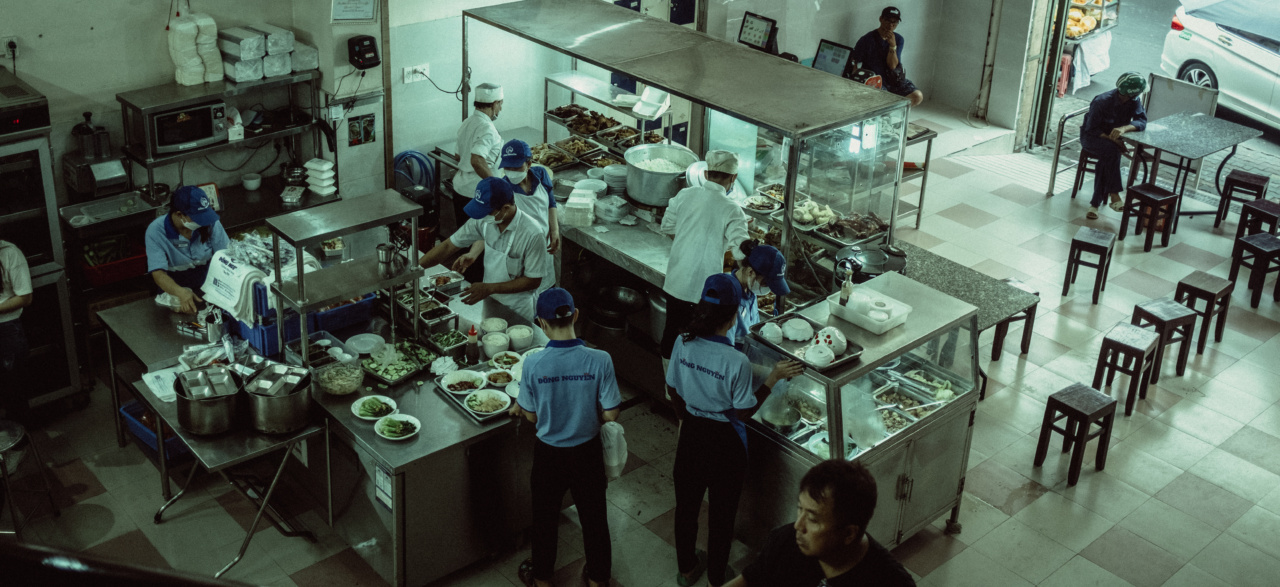Food hygiene is of utmost importance in the culinary industry to ensure the safety and well-being of consumers.
As European chefs and cooks play a vital role in preparing and serving meals, it is essential for them to undergo proper food hygiene training. This article aims to explore the significance of food hygiene training for European chefs and cooks and the benefits it brings to the industry.
The Importance of Food Hygiene Training
1. Ensuring Consumer Safety.
Proper food hygiene practices prevent the spread of harmful bacteria, viruses, and other contaminants that can cause foodborne illnesses.
By undergoing food hygiene training, European chefs and cooks learn how to handle, prepare, and store food safely, reducing the risk of foodborne diseases and ensuring consumer safety.
2. Compliance with Regulations.
Food hygiene regulations are in place to protect consumers and maintain high-quality standards in the food industry. European chefs and cooks need to comply with these regulations to avoid fines, closures, or even jail time.
Food hygiene training equips them with the knowledge of these regulations, helping them meet the required standards and operate within legal boundaries.
3. Building a Good Reputation.
By prioritizing food hygiene training, European chefs and cooks demonstrate their commitment to providing safe and hygienic meals. This commitment builds trust with customers, creating a positive reputation for the establishment.
Word-of-mouth recommendations and positive online reviews can significantly impact the success and profitability of a restaurant or catering business.
The Benefits of Food Hygiene Training for European Chefs and Cooks
1. Enhanced Knowledge and Skills.
Food hygiene training provides European chefs and cooks with comprehensive knowledge about best practices, principles, and techniques for handling food safely.
They learn about personal hygiene, cross-contamination prevention, temperature control, and proper cleaning and sanitization methods. This knowledge significantly enhances their skills and ability to maintain strict food safety practices in the kitchen.
2. Increased Confidence.
With proper food hygiene training, European chefs and cooks gain confidence in their ability to handle and prepare food safely.
They understand the potential risks associated with improper food handling and are equipped with strategies to mitigate those risks. This confidence reflects in their work, leading to better quality meals and customer satisfaction.
3. Improved Efficiency.
Food hygiene training emphasizes the importance of efficient workflow and organization in the kitchen to maintain hygiene standards.
European chefs and cooks learn techniques for avoiding cross-contamination, proper storage practices, and effective cleaning routines. By implementing these strategies, they reduce the chances of food spoilage, save time in meal preparation, and improve overall efficiency in the kitchen.
4. Mitigating Legal Risks.
European chefs and cooks who undergo food hygiene training are well-informed about the legal requirements and standards set by regulatory authorities.
By adhering to these regulations, they reduce the risk of legal implications, such as fines, penalties, or closure of their establishments. Food hygiene training ensures they stay up to date with the latest industry regulations, minimizing legal risks.
5. Protecting Business Reputation.
A single foodborne illness outbreak can tarnish the reputation of a restaurant or catering business.
Food hygiene training equips European chefs and cooks with the knowledge and skills needed to prevent contamination, handle ingredients properly, and maintain a clean and sanitized environment. This diligent approach to food safety protects the business’s reputation and fosters trust among customers.
Food Hygiene Training in Europe
1. Regulatory Requirements.
Each European country has its own set of food safety regulations and requirements. Food hygiene training programs in Europe aim to help chefs and cooks understand and comply with these regulations.
The training covers topics such as food storage, temperature control, personal hygiene, cleaning and sanitization, and allergen management.
2. Accredited Training Providers.
Several organizations provide accredited food hygiene training in Europe. These providers offer courses that meet national and international standards.
Chefs and cooks can choose from online or in-person training, depending on their preferences and availability. Some well-known training providers in Europe include the Royal Society for Public Health (RSPH), Highfield Qualifications, and the Chartered Institute of Environmental Health (CIEH).
3. Importance of Continuing Education.
Food hygiene practices and regulations are constantly evolving. It is crucial for European chefs and cooks to engage in continuous education and stay updated about new developments in food safety.
Training providers often offer refresher courses or advanced-level training to help industry professionals enhance their knowledge and skills.
Conclusion
Food hygiene training plays a vital role in ensuring the safety of consumers and maintaining high standards in the European culinary industry.
By undergoing proper training, European chefs and cooks acquire the necessary knowledge and skills to handle, prepare, and serve food hygienically, reducing the risk of foodborne illnesses and legal complications. Investing in food hygiene training benefits not only the professionals themselves but also their establishments and the reputation of the entire industry.




























